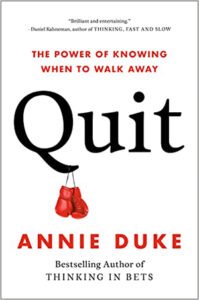|
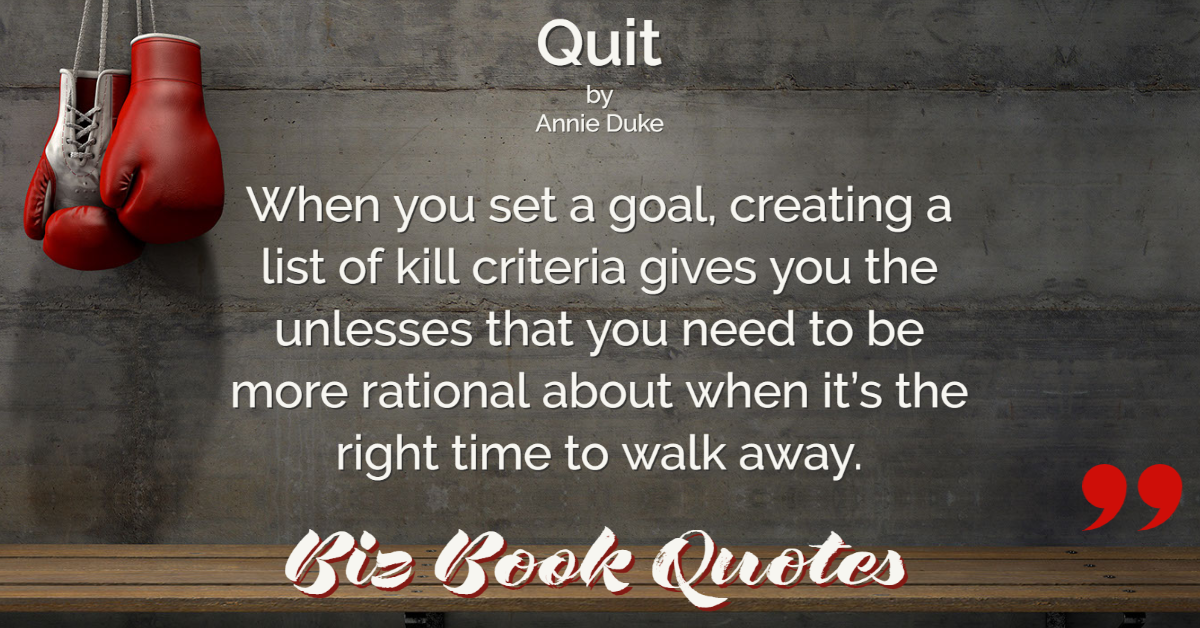
|
Quit:
When you set a goal, creating a list of kill criteria gives you the unlesses that you need to be more rational about when it’s the right time to walk away.
|
238 |
|
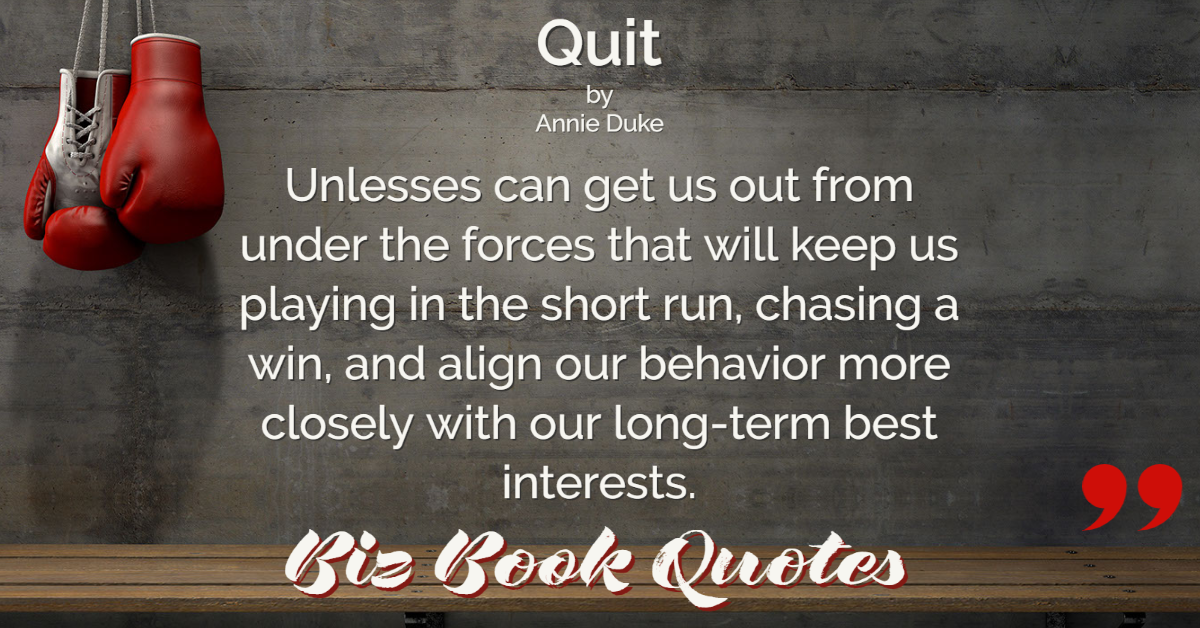
|
Quit:
Unlesses can get us out from under the forces that will keep us playing in the short run, chasing a win, and align our behavior more closely with our long-term best interests.
|
239 |
|
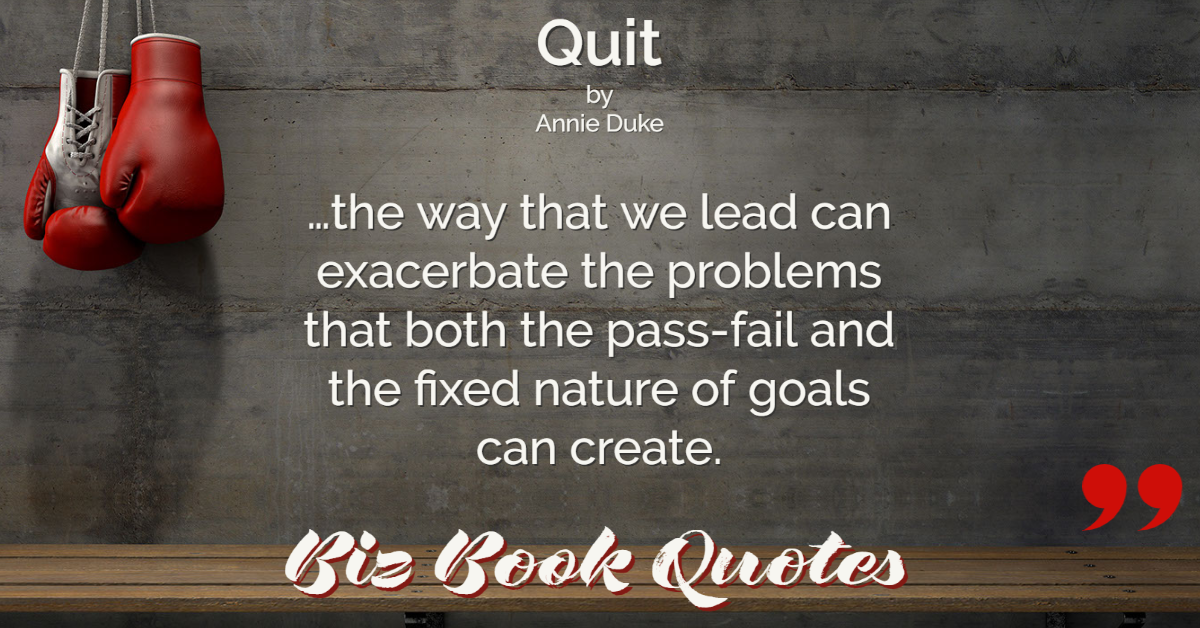
|
Quit:
…the way that we lead can exacerbate the problems that both the pass-fail and the fixed nature of goals can create.
|
242 |
|

|
Quit:
Leaders commonly fall into the trap of evaluating people solely by whether they’ve achieved a goal or not. When they do that, they’re increasing the potential for escalation of commitment.
|
242 |
|

|
Quit:
A good set of kill criteria means you can win by achieving a goal or by successfully following those kill criteria.
|
242 |
|

|
Quit:
Quitting when the time is right is accomplishing something valuable. Following through on an unless gives you a way to live that.
|
242 |
|
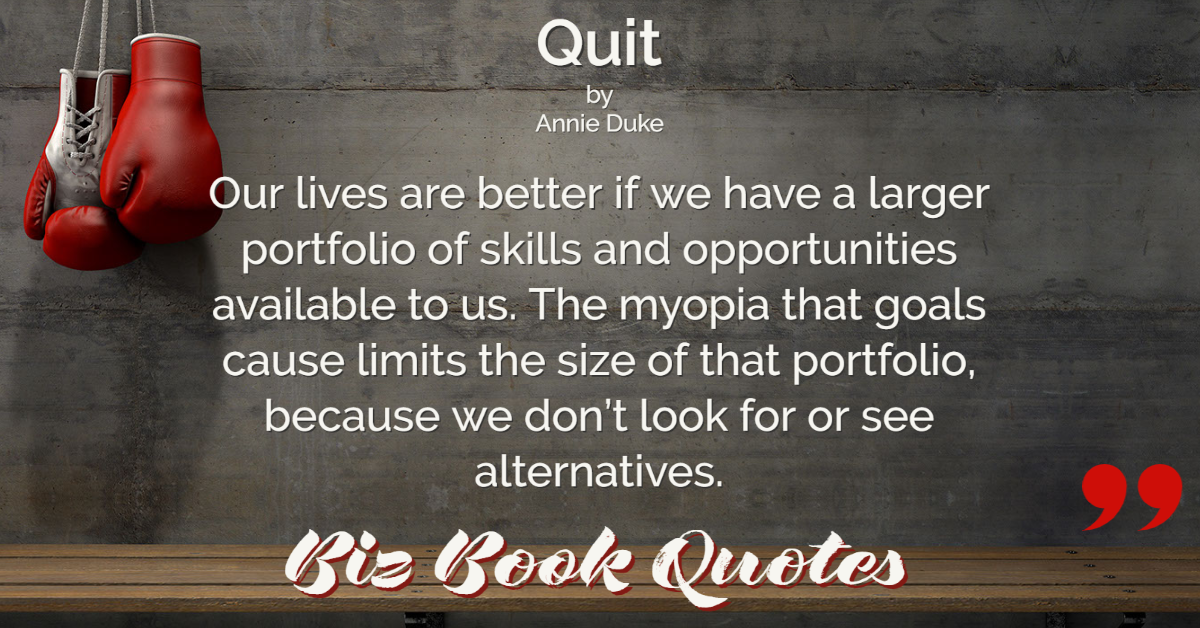
|
Quit:
Our lives are better if we have a larger portfolio of skills and opportunities available to us. The myopia that goals cause limits the size of that portfolio, because we don’t look for or see alternatives.
|
243 |
|
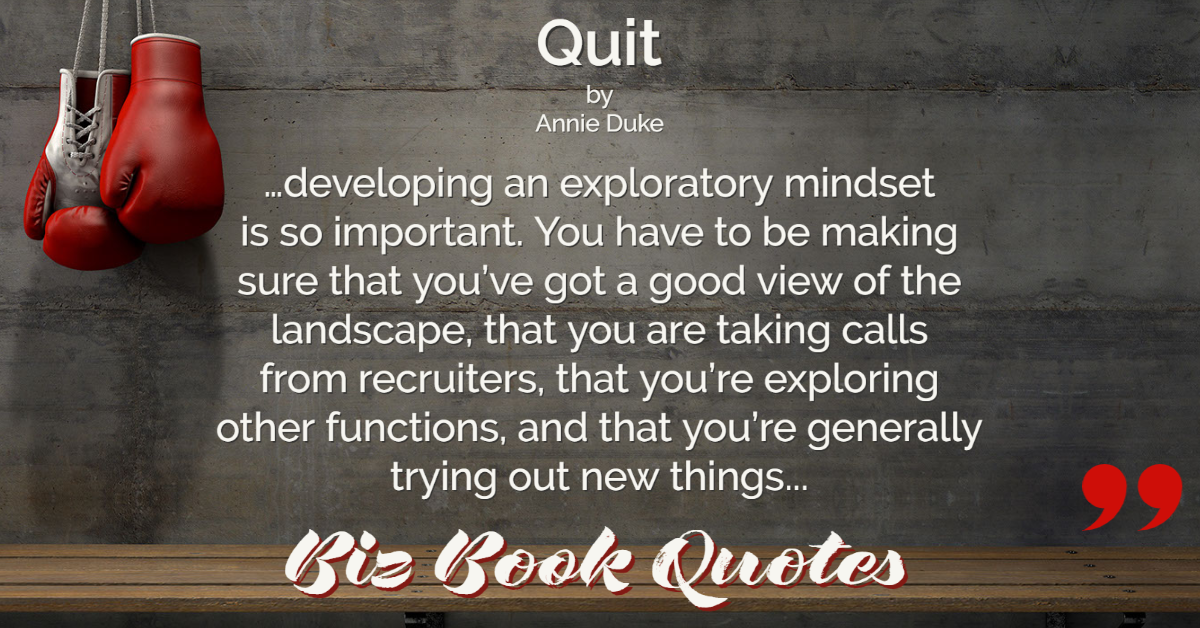
|
Quit:
…developing an exploratory mindset is so important. You have to be making sure that you’ve got a good view of the landscape, that you are taking calls from recruiters, that you’re exploring other functions, and that you’re generally trying out new things…
|
244 |
|
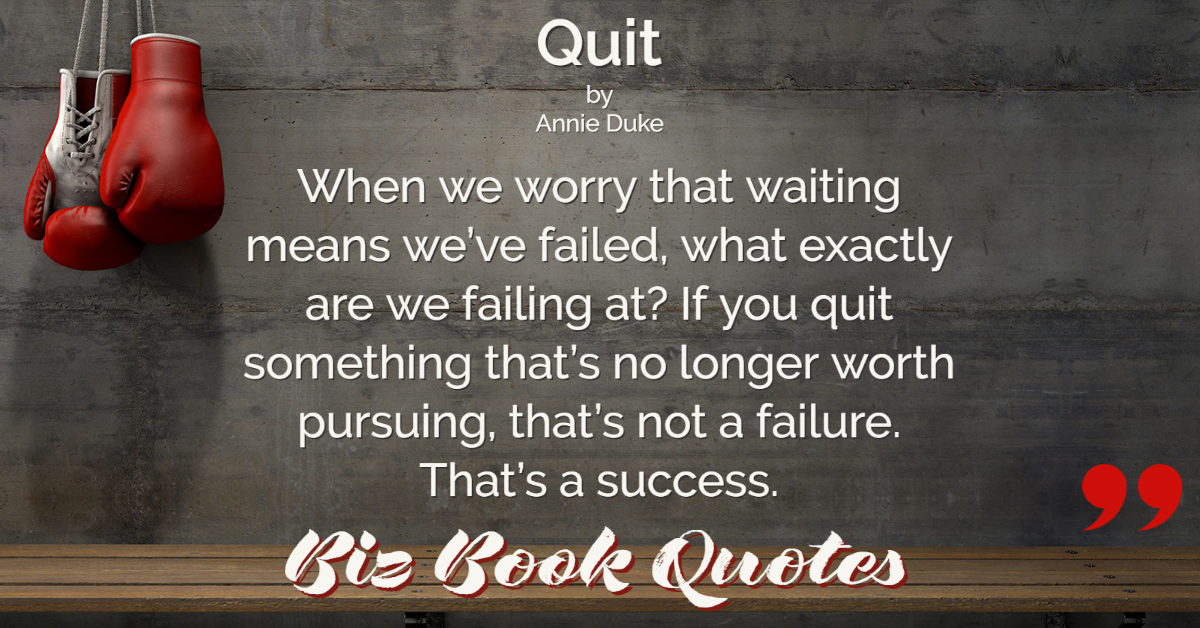
|
Quit:
When we worry that waiting means we’ve failed, what exactly are we failing at? If you quit something that’s no longer worth pursuing, that’s not a failure. That’s a success.
|
245 |
|
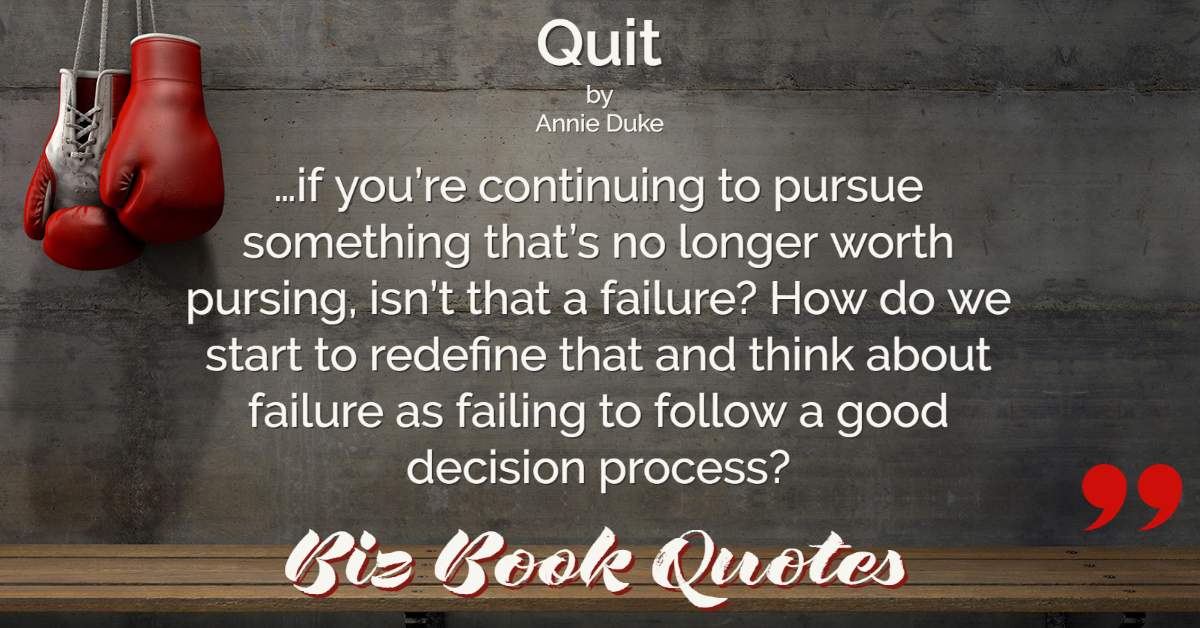
|
Quit:
…if you’re continuing to pursue something that’s no longer worth pursing, isn’t that a failure? How do we start to redefine that and thing about failure as failing to follow a good decision process?
|
245 |
